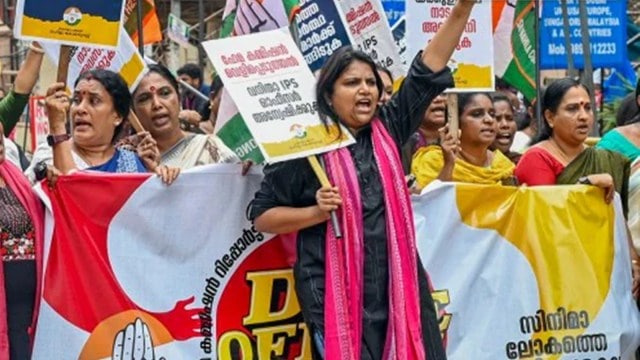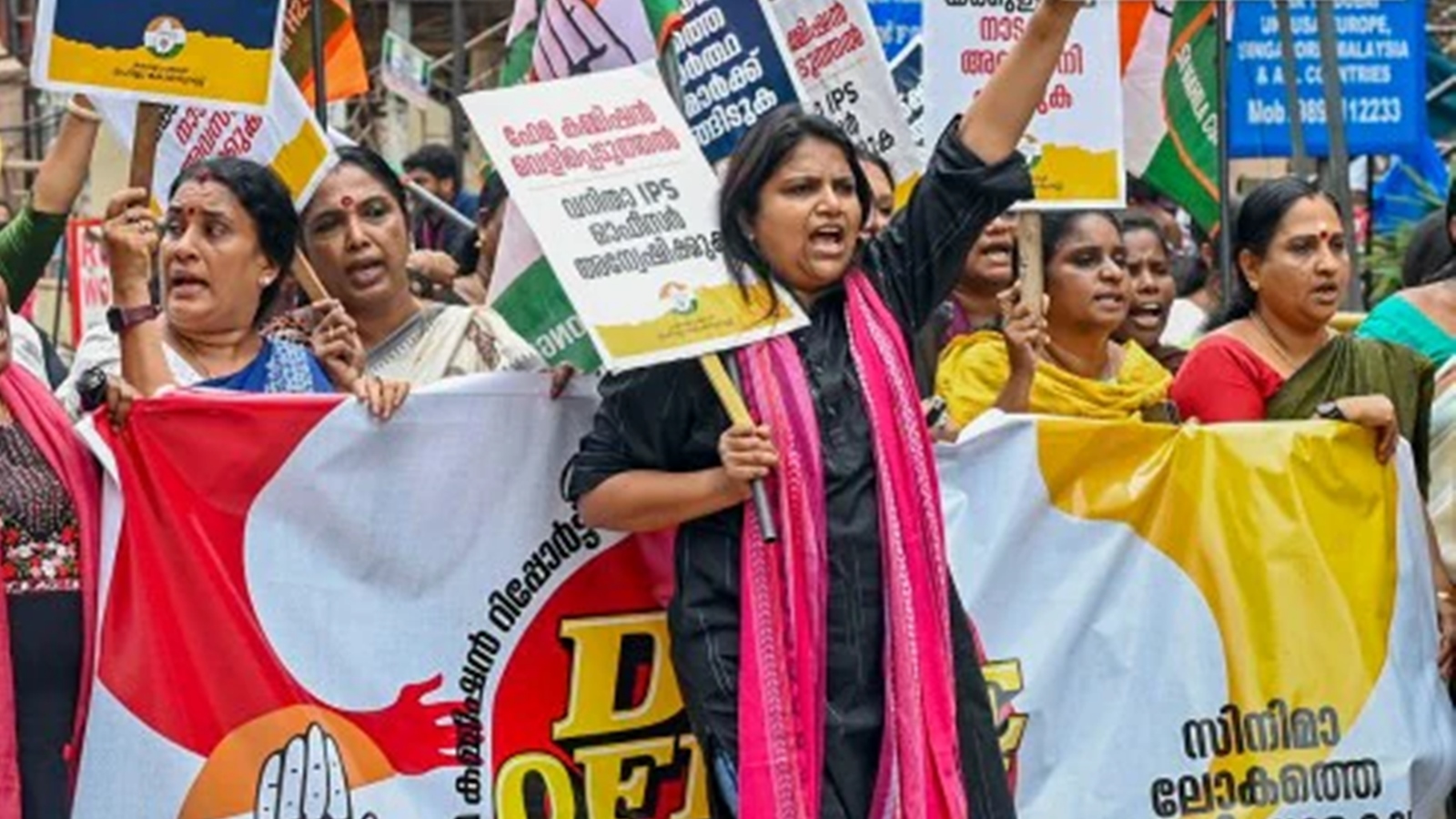
Each time something awful happens to women in Kerala, some of my research colleagues ask: “How can this happen in Kerala?” At least half of my academic life has been spent trying to correct over-expectation about nearly everything in Malayali social life, but this time, it seemed different. In the discussions of the revelations of the Hema Committee report on sexual harassment and exploitation of women in Malayalam cinema (edited closely for details about the alleged sexual abusers), I had to say, “Actually, this could happen only in Kerala.”
Of course, rampant exploitation and sexual abuse is not limited to Malayalam cinema — rather, it arises from the very fuzziness of the boundaries between cinema as entertainment/art form and cinema as industry. It also relates to the history of regional cinema in particular — rural-feudal in character, built on pillars of usurious capital and traditional caste hubris — that shaped the manner in which artistes in general, and female artistes in particular, were treated. The questioning of such structures has remained limited and delayed probably because of cinema’s status as “art” and culture, in which genius was never to be questioned, material concerns were secondary (at least for the most powerless of its devotees), and informality was hailed as absolutely central to artistic creativity. We also would not be surprised by the inordinate delay in releasing the report. Nor would the intricate and ultimately silly technicalities, the twists and tangles of bureaucracy, advanced to justify both the delay and the government’s apparent reluctance to act strongly on the report, leave us astonished. For example, the debate on whether it was “Hema Committee” or “Hema Commission” (with their different implications of power) seemed to outweigh the need to urgently curb the abuse, sexual violence, and rampant exploitation of women in Malayalam cinema which the report brings to light on the basis of evidence collected diligently in government-approved ways.
When I said that “it could happen only in Kerala,” I was referring to the Women in Cinema Collective and their struggle which led to the formation of the Hema Committee in 2017. In the new century, Malayalam cinema witnessed the entry of many educated, middle-class or elite women into the film industry, and not just as actors. Women had started entering higher education in larger numbers in the mid-1980s, once colleges spread into the more rural parts of the state. Women were a striking presence in many areas of higher education, media, and cultural and literary publics after the 1990s. With the opening up of the state to global cultural flows, feminism, media, and the internet and digital spaces, individuated young women, empowered by education and also their caste and class capitals, were headed for a collision with the still-feudal patriarchal structures of the Malayalam cinema industry. In the 1990s, these structures had become all the more rigid and centred around “male superstars” — and a female superstar seemed unimaginable, despite highly successful and phenomenally talented women actors like Urvashi. These two distinct developments were such that they could not but collide.
The actor abduction incident which brought women artistes together to form the WCC was only a trigger. Because, historically, such individuation through female education has happened in Malayali society ahead of the other Indian states, I would maintain, this can happen “only in Kerala”.
The massive power imbalance between powerful men and women at the bottom in cinema should not be underestimated. The part of social media jeering against young female actors and junior artistes’ claims that they offered sexual favours in return for entry. Indeed, if the alignments were such that a woman without other kinds of capital to aid her could make her way into the industry only through that route, how can one hold her responsible for making herself sexually available? And even if she did offer herself persistently out of sheer adoration for the “genius” of a male actor/director/script writer, that is still exploitation — because in such relationships, it is the moral responsibility of the more powerful party to point out that it was not they, but their achievements, that are actually being adored.
The Kerala government may try its best to dilute action, to divert attention, but the discourse that the report has triggered in Kerala cannot be curbed so easily. The success of the WCC lies precisely in that. This is an interesting time indeed, to live in Kerala. Not of hope, not of despair — but of a slow, if decisive, struggle to transform the very soul and essence of the Malayali.
The writer is a historian and professor, Centre for Development Studies, Thiruvananthapuram



